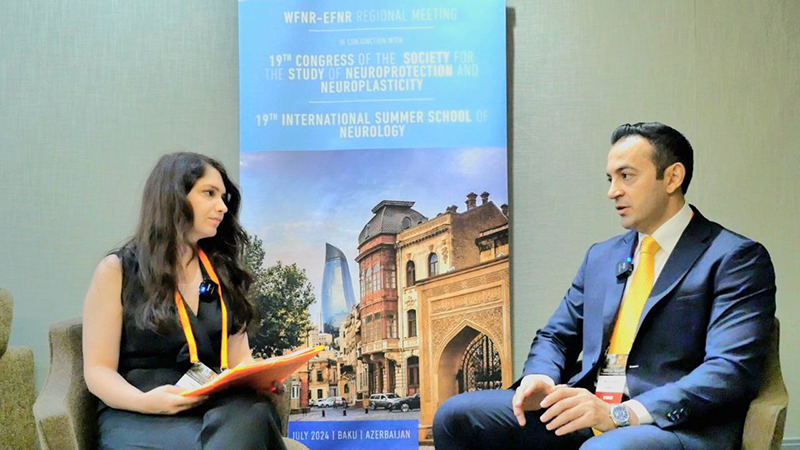S.D.: We are at the WFNR-EFNR Regional Meeting in Baku, Azerbaijan, jointly organized with the 19th Congress of the Society for the Study of Neuroprotection and Neuroplasticity and the 19th International Summer School of Neurology, with Dr. Parvin Akbarov, advisor to the chairman and administration of the Regional Medical Division (TABIB), and member of the board of directors at Yeni Clinica. Dear Dr. Akbarov, what is the added value of this teaching course in Central Asia and how could it be capitalized at the local level?
P.A.:Thank you for the question. This collaborative event is a significant milestone for advancing neurorehabilitation, neuroprotection, and neuroplasticity education in Central Asia. Its added value lies in its ability to bridge the gap between global scientific advancements and regional clinical practices. It is important for global health management and global healthcare. We can approach this from different points. This is [a platform for] networking, innovation, and sharing knowledge. They are bringing experts to the region and training the participants to make new leaders in neurorehabilitation, for example. This is improving healthcare service possibilities. That is why this is a good opportunity for our country. Today, the European Federation of Neurorehabilitation Societies (EFNR) together with more than 100 experts came to Baku, Azerbaijan, and shared their knowledge and experience. In the future, this course and Congress will provide a lot of advantages to our healthcare system.
Finally, training young professionals through such initiatives will ensure the sustainability of these advancements by building a generation of skilled specialists who can carry the torch forward.
As an advisor at TABIB and a board member at Yeni Clinica, I strongly believe that continuous education and collaboration are key to fostering innovation and improving healthcare outcomes in the region.





















